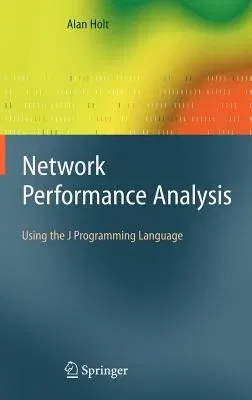The purpose of network performance analysis is to investigate how
traffic-management mechanisms deployed in the network affect the
allocation of resources amongst its users and the performance they
experience. This topic can be studied by the construction of models of
traffic management mechanisms and observing how they perform by applying
them to some flow of network traffic.
This useful volume introduces concepts and principles of network
performance analysis by example, using the J programming language. J is
rich in mathematical functionality, which makes it an ideal tool for
analytical methods. The book favours a practical approach and develops
functions in J to demonstrate mathematical concepts, thereby enabling
readers to explore the underlying principles behind network performance
analysis. In addition, this allows the subject to become more accessible
to those who, although have a mathematical background, are not pure
mathematicians.
Topics and features:
- Uses an example-driven approach to introduce the fundamentals of
network performance analysis
- Provides a concise introduction to the J programming language
- Presents network calculus as a method for designing and engineering
networks
- Focuses on statistical analysis and stochastic processes
- Demonstrates how to simulate traffic with both short-range and
long-range dependence properties
- Covers ATM QoS, and examines Internet congestion control
Network Performance Analysis will equally appeal to network
professionals and postgraduates studying the topic by providing valuable
analytical tools and using J as a means of offering a practical
treatment of the subject. Dr. Holt has a broad range of industry
experience and now regularly lectures on this topic.

